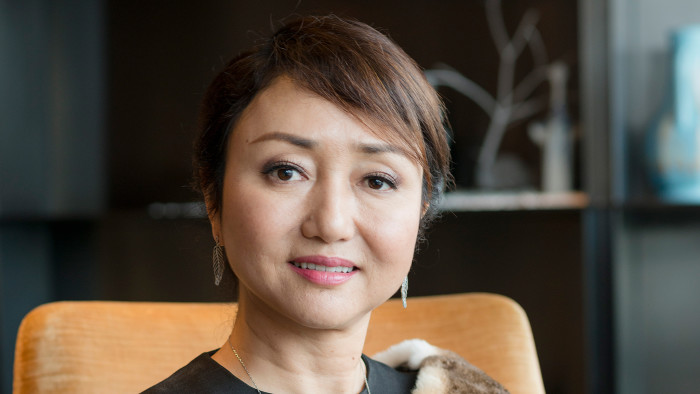What business school taught a start-up CEO about the long view

Simply sign up to the Business education myFT Digest -- delivered directly to your inbox.
Diana Li was chief executive of Shanda Games before her course at Ceibs and now heads her own start-up, Utan, which provides online services to Chinese women
***
When Diana Li was preparing to embark on the Ceibs Global CEO programme in 2009, she worried whether it would really amount to more than an expensive way to network and build business contacts.
It was a busy moment in her life — she was preparing to float Shanda Games, the Chinese online gaming company where she was chief executive, on Nasdaq. At that time, she was hankering to learn leadership and strategy from experts, rather than make contacts.
“My goal was to be a more effective CEO,” she says. The programme is targeted at chief executives, board chairs and top decision makers with more than 10 years of experience in senior management in Chinese companies.
Li, 47, had previously educated herself by getting into situations where she learned on her feet. She hoped that the programme, which was taught at Ceibs in Shanghai, as well as Harvard Business School and Iese in Barcelona, would extend her learning in a formal educational environment.
Li is now chief executive of her own start-up, Utan, a suite of online services and communities for women in China focusing on topics including parenting and health. She believes her earlier, practical learning helped her to forge her own path, evolving from a quiet, shy psychology undergraduate at Peking University.
When she went to the US for her graduate studies in applied statistics at Bowling Green State University in Ohio, which was twinned with Peking University, she started to find her own way. “I was a 22-year-old woman and went to a new world and was born again,” she recalls. “I had to learn the language, I didn’t even know how to check out at a US supermarket. People looked at me as different.”
Later she put herself in difficult situations to learn new skills, such as at Microsoft, overseeing the technical side of the Office software. “I did not know how to programme before that. It had the best engineering culture and I wanted to learn,” she says. Li went on to develop the Xbox’s internet certification in different regions.
When she returned to China to oversee Shanda Games in Shanghai, she felt her homeland was “a new country” and had to learn how to operate there.
“I really wanted to learn from experience, from theory and practice to be a better CEO,” she says of her time at Ceibs. In the end she did just that, studying competitive strategy, marketing, strategic human resources and operations management among other subjects.
It was helpful to go through case studies and visit factories to understand how retailers price fast fashion, Li says. But she also valued the theoretical classroom training — learning for example about the Balanced Scorecard, a practical tool for key performance indicator management, review and reward. “We learned from Robert Kaplan, the creator of BSC,” she says.
On the downside, it took her three years instead of one to complete the programme because she could not afford the time away from her new business, her two sons, husband and pet dog.
While the networking did prove valuable, for Li this was less about making contacts than learning from her fellow students, particularly those who ran traditional consumer businesses.
“They grow much slower and need a longer game plan to look after their employees,” she says. This contrasts, she adds, with fast-growing internet companies, where there can be an expectation of burning through money. One classmate, for example, ran a company selling sunflower seeds in provinces and cities cross China. “Their channels are a variety of sizes and require charisma and discipline to manage well,” Li says
She takes part in alumni activities. “Learn from the best, mingle with the best,” as she puts it. There are opportunities to attend study tours at home and abroad and alumni share information and recommend books to each other.
“I don’t want to rush,” Li says. “Life is long. I want to be a CEO who can build a long-lasting business.”

Comments